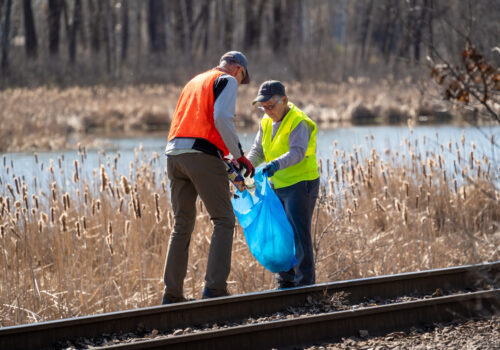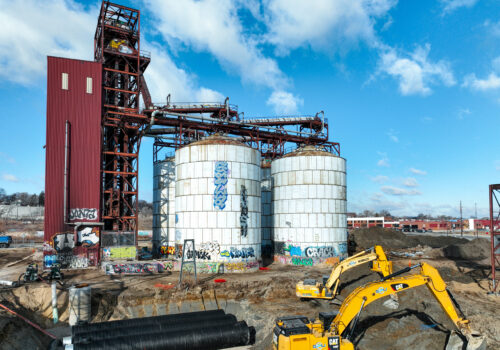News / October 06, 2016
How 7 SIGMA Helped Pioneer Rain Gardens in Minneapolis


In 2004, Minneapolis manufacturing firm 7-SIGMA faced a dilemma. The company wanted to construct a new shipping area and employee parking lot, which would require them to landscape at least 20 percent of the site, per city planning requirements. At the same time, they also needed to disconnect their old roof drains from the sanitary sewer system. One 7-SIGMA employee saw an opportunity to solve both problems by employing a new technology for managing stormwater through the use of native plant landscaping that would filter pollution.
“I had been to a couple of conferences where rainwater gardens were discussed as an engineered landscaping alternative that could manage stormwater runoff,” said 7-SIGMA Building/Facilities Improvements Manager Judy Van Cleve (pictured above). “I spoke with 7-SIGMA’s owner, Kristian Wyrobek, and we began looking into this technology for our new site improvements.”
At the time, using rain gardens to manage stormwater runoff was rare for commercial properties. While individual homeowners had begun to install rain gardens, there were not many large commercial installations for the 7-SIGMA team to look at. The idea of businesses satisfying mandated landscaping requirements through native plant landscaping was still relatively new.
Fortunately for 7-SIGMA, local landscape architect Fred Rozumalski of Barr Engineering had designed several large rain garden installations, and was an early proponent of using rain gardens to reduce the impact of polluted stormwater drainage into the Mississippi River. Van Cleve heard Rozumalski speak at a local conference on the subject, and told Kristian that she felt that Rozumalski would be able to guide the company through the decision on whether or not to go the rain garden route.
“I contacted Fred on behalf of 7-SIGMA, and we started from there,” Van Cleve said.
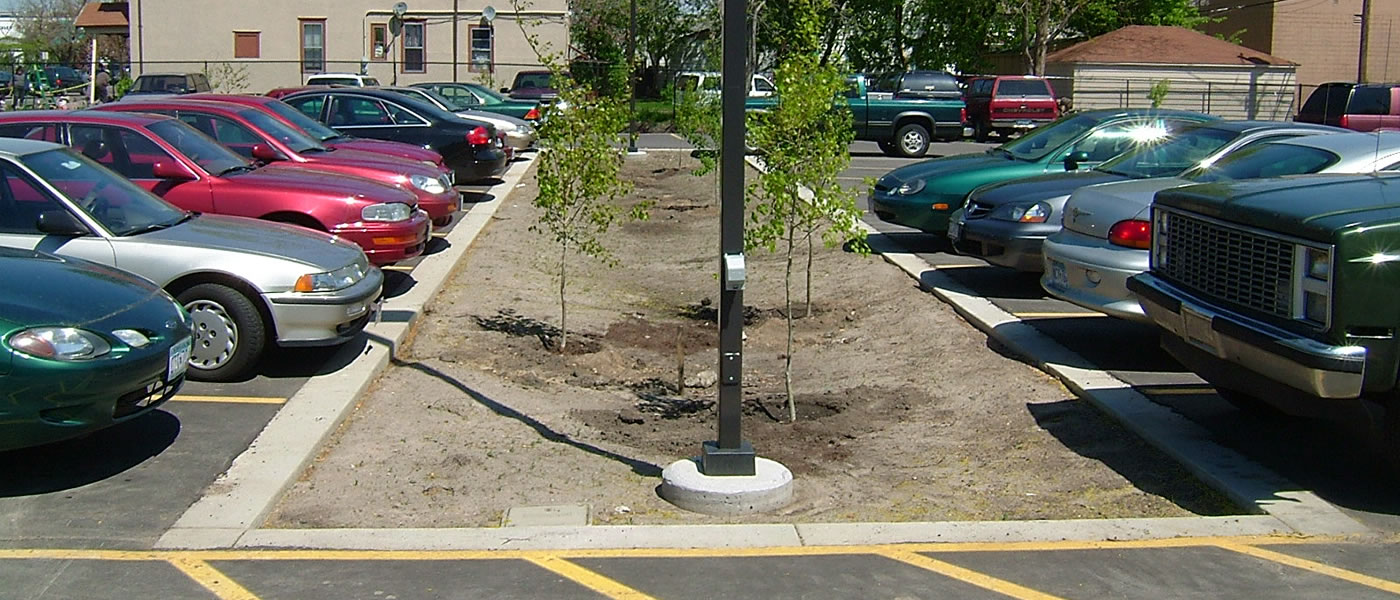
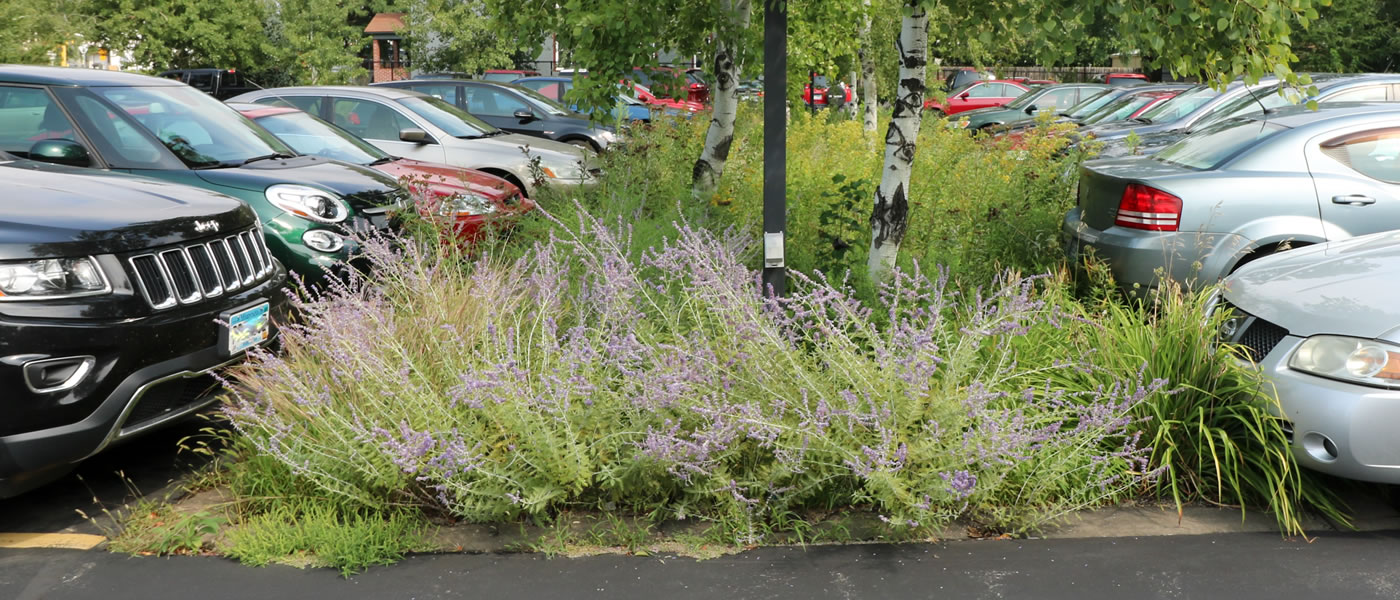
Working with the 7-SIGMA team, Barr devised a rain garden system that would ring the new shipping and parking areas. The rain gardens consisted of swales that were engineered to attain a depth that would connect with a pre-existing sand layer, allowing for approximately 75 percent of polluted stormwater from the paved and some roofing surfaces to drain naturally back to groundwater. The plants necessary to provide the filtrating root systems represented a significant project expense, and a $25,000 grant from the MWMO’s Stewardship Fund helped to pay for a large portion of the required plant materials.
The new landscaping was a huge success, as the gardens proved capable of infiltrating stormwater at an even higher rate than Barr had assumed in their design — up to several inches per hour, as opposed to the 0.5 inches per hour initially projected by Barr. The project won acclaim, including a 2005 Best Water shed Friendly Garden award and a First Place Exceptional Award from Minneapolis Blooms (now Metro Blooms).
The company’s $200,000 landscaping project quietly established a new local model for stormwater management on a commercial property. But what makes it even more special is the extra effort that 7-SIGMA continues to put into maintaining the rain gardens. One of the key participants in the installation of the gardens, Thomas McClain of Grow, Inc., now works with 7-SIGMA on the rainwater gardens and its annual maintenance plan. Additionally, an automatic irrigation system is wired to a rooftop rain gauge, ensuring that irrigation is utilized only when necessary to keep the eleven-year old garden thriving.
Before and After
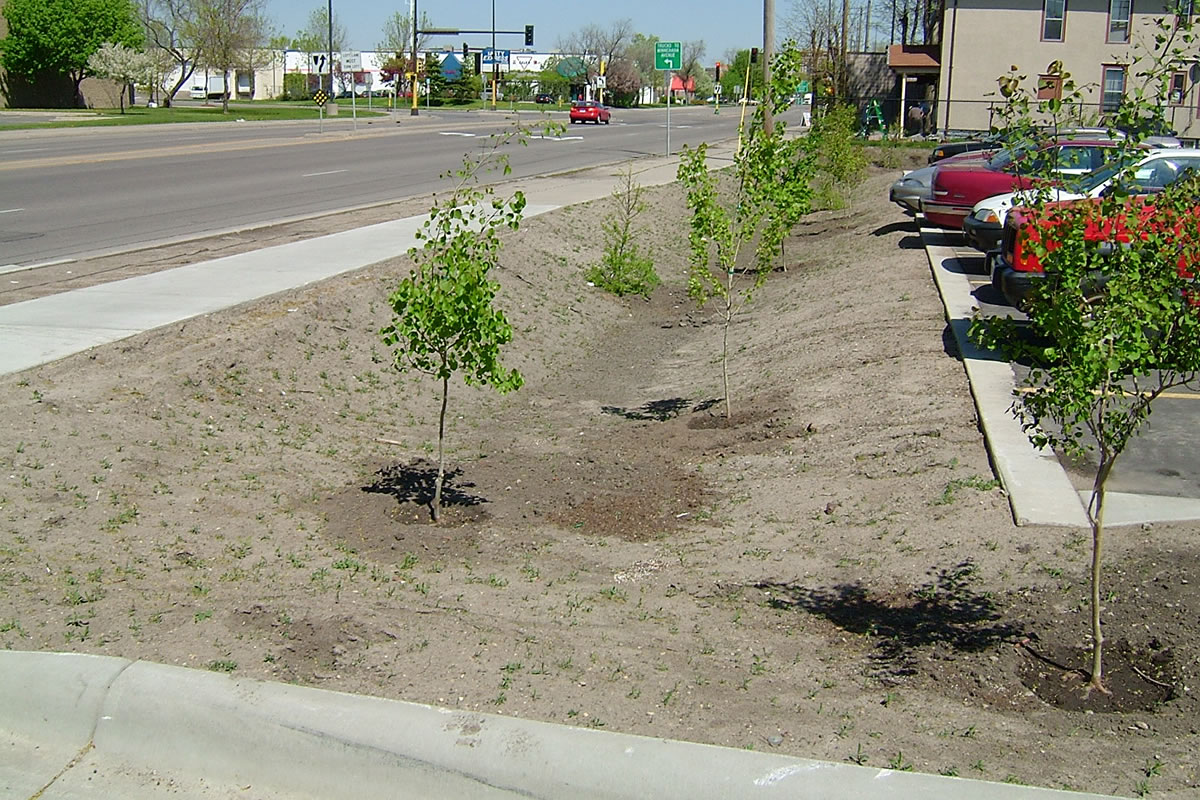
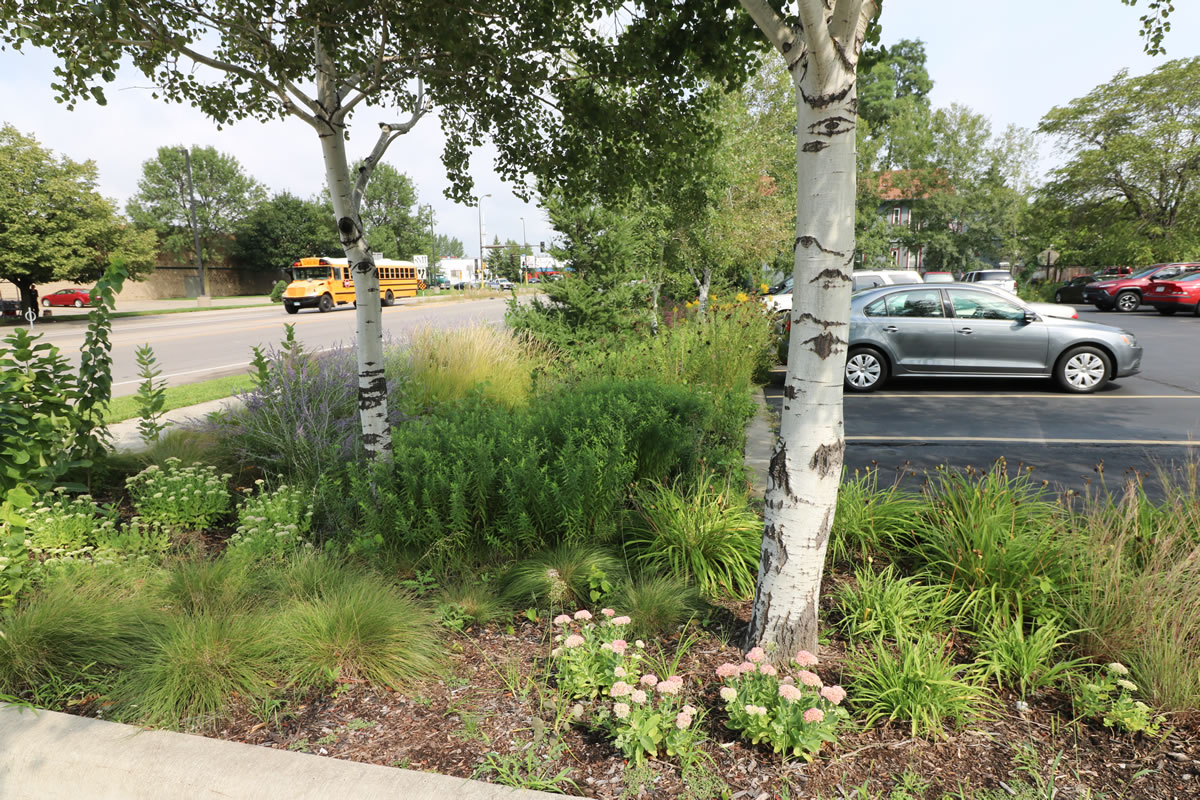
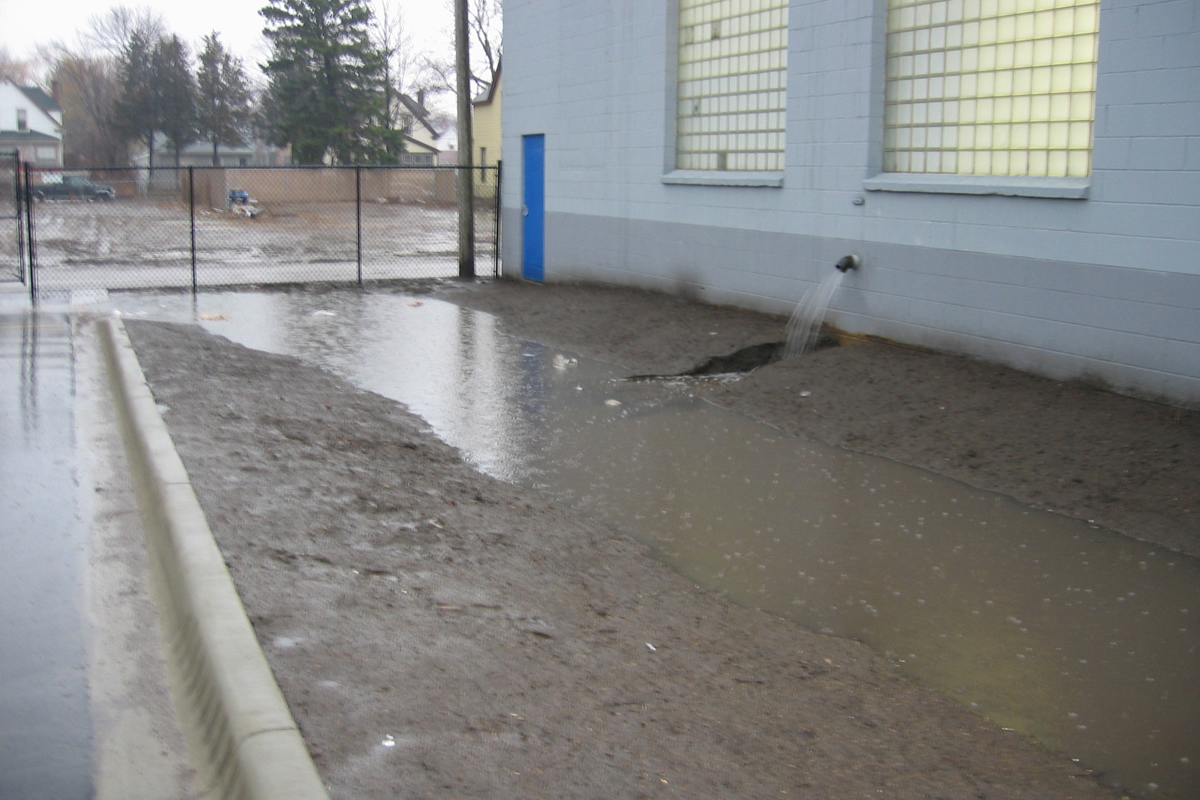
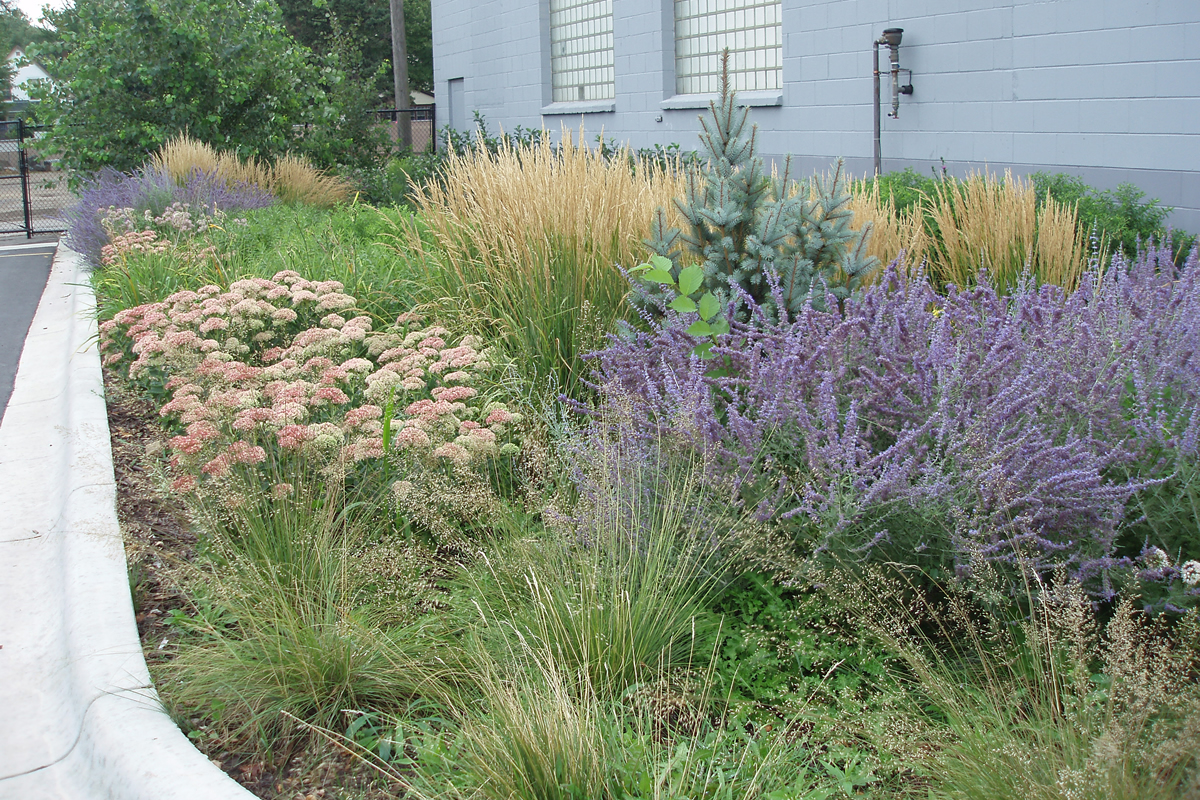
Learn More
Project Page

